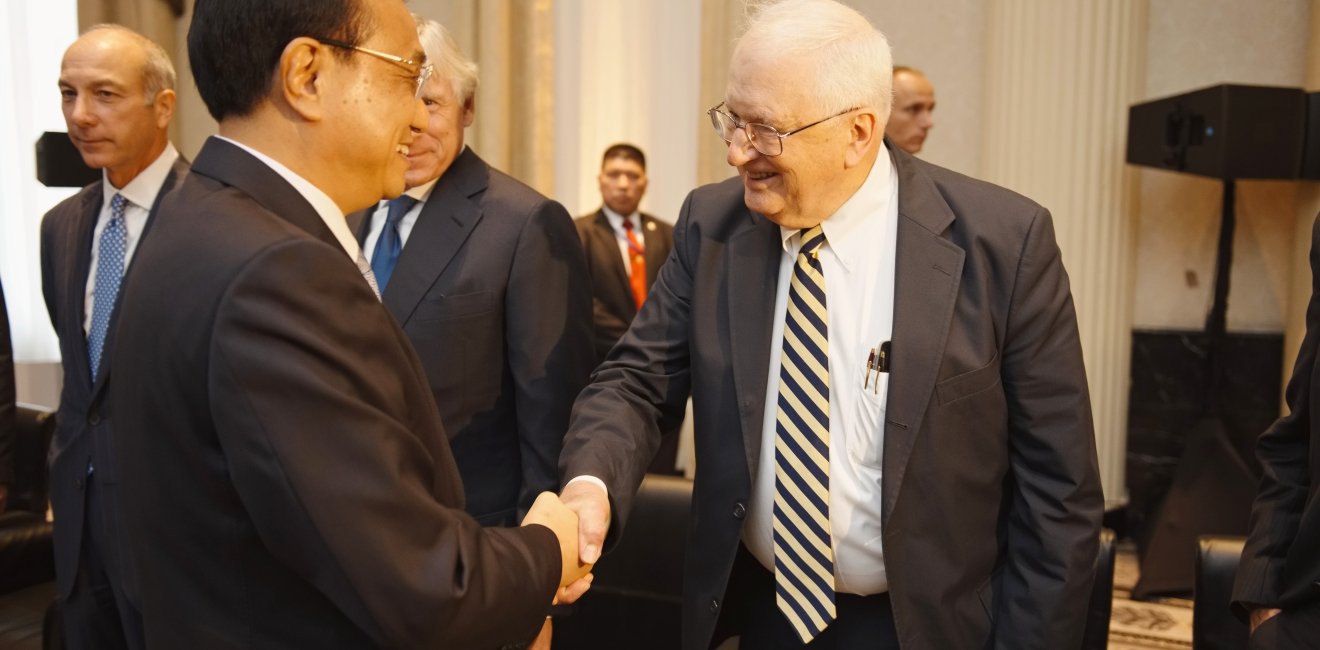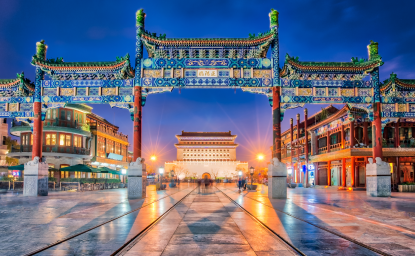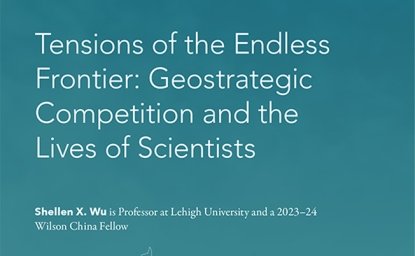Good morning. Over the next two days a distinguished group of Wilson Center fellows will present their findings and recommendations on a range of foreign policy issues involving the rise of China and the outlook for US-China relations. Given the quality of these fellows, I am looking forward to a fascinating and stimulating two days.
My role is more modest, which is simply to offer some thoughts that might be useful to bear in mind during our discussions. I was privileged to serve as an American Foreign Service Officer for 45 years, beginning in 1956, when the United States was still adjusting to its status as a major global power. For the final 35 years of the Cold War from 1956 until 1991, US military capabilities were balanced by those of the Soviet Union, a global super power that opposed the United States in our wars in Korea and Vietnam, brought us to the brink of nuclear war in 1962 when it tried to introduce nuclear missiles into Cuba, and claimed the leadership role in an ideological movement that dominated the heartland of Eurasia and had gained footholds in the Middle East, Africa and the western hemisphere.
With the unraveling of the Soviet Union in 1991, the United States emerged as the sole global super power, a position that we had not sought and which was inherently inconsistent with our most fundamental political principle, which is that concentrated power is dangerous and must be checked and balanced. Most of us associate this concept with Lord Acton’s admonition that power corrupts and absolute power corrupts absolutely. But it is noteworthy that George Washington also addressed the issue in his farewell address:
The spirit of encroachment tends to consolidate the powers of all the departments in one, and thus to create, whatever the form of government, a real despotism. A just estimate of that love of power, and proneness to abuse it, which predominates in the human heart, is sufficient to satisfy us of the truth of this position. The necessity of reciprocal checks in the exercise of political power, by dividing and distributing it into different depositaries, and constituting each the guardian of the public weal against invasions by the others, has been evinced by experiments ancient and modern; some of them in our country and under our own eyes. To preserve them must be as necessary as to institute them.
Curiously, Americans reveled in being the sole super power, convinced that we would use our power not simply to advance US interests, but also to benefit mankind. Twenty years later, we have a better understanding of how easy it is to abuse unchecked power.
From this rather narrow standpoint, the rise of China is a good thing, as is the transition to a multipolar world. Rather than welcoming this development, however, we are becoming increasingly concerned that China is gaining the capability to check and balance our power in ways that are damaging US interests and those of our allies, especially in East Asia. Indeed, this is one of the themes that we will be addressing over the next two days.
Clearly, the foreign policy and security challenges facing the new Biden administration require its undivided attention, but it is distracted by the most troubled US presidential transition in over 100 years. Nevertheless, our newspapers and journals are filled with essays offering advice on what we should be doing. As usual, the quality of this advice ranges from very good to horrid. Unsurprisingly, China occupies a central position in the policy recommendations that are being put forward. Following are some scattered thoughts that arose in my mind on reading these essays.
First, we think about change in China in much too short a time frame. This is what I call the mistake of proving that grass doesn’t grow. This is easy to do. Simply take a friend and sit together in your garden for several hours. At the end of this period, if you examine the grass you will find that there is no discernable change. But you will be wrong, of course. Grass does grow. If you wait a week to examine the change, you can easily identify it.
George Kennan wrote his famous long telegram in February 1946. In it he predicted that the Soviet Union would eventually collapse because of its own internal contradictions. He did not advocate trying to change Moscow’s domestic system, recognizing that such an effort would be both dangerous and ineffective. Instead, he recommended that Soviet military expansion be contained, and this became the basis for the US Cold War policy toward the Soviet Union. Forty-five years later, in 1991, the Soviet Union did indeed collapse, proving the accuracy of the Kennan prediction. But for nearly half a century he had seemed to be wrong. Soviet communism lasted in Russia for 74 years, from 1917 until 1991. Most observers were surprised by the speed with which an apparently stable Moscow regime encountered a domestic crisis that led to its disintegration because of internal contradictions.
In the case of China, the US policy of engagement has been discredited by knowledgeable foreign policy specialists who claim engagement was based on wholly unrealistic expectations that it would produce positive change in China. There is no question that engagement did facilitate Deng Xiaoping’s reform and openness policies that produced several decades of rapid economic development in China, resulted in the globalization of its economy, and imbedded hundreds of thousands of western educated young Chinese in governing and educational institutions throughout the country.
These developments did indeed make China a far more challenging rival of the United States. But they also were instrumental in modernizing China’s economy and social structures and reforming its educational system. These reforms undermined the legitimacy of China’s authoritarian Leninist system of governance, which had been thoroughly corrupted by the explosive generation of wealth that flowed into the pockets of the ruling elite. This has caused a backlash, marked by repression of free thought and discussion, favoritism for state-owned enterprises, and emphasis to the point of absurdity on every aspect of life in China needing to have Chinese characteristics, an obvious effort to curb western influences.
This was not the intent of engagement, but it is one of its collateral consequences. China’s communist rulers are struggling to manage the number one contradiction in China, which is that between its modernized economy and society, and its refusal to modernize its pre-modern political system. In other words, there is a struggle underway in China to curb the influence of western ideas and examples of governance. The repression in China is not necessarily the end state of where China is heading. It is part of the process of change. As Chairman Mao would have put it, to borrow from one of his more colorful quotes, you cannot expect China’s authoritarian rulers to lay down their butcher’s knives and become Buddhas.
My point is that we should not prejudge the outcome of this struggle by analyzing developments in China over too short a time frame. The outcome will be determined over decades, not simply over a few short years. Just as globalization produced winners and losers in the United States, a problem that lies at the root of our domestic instabilities, it has had the same effect in China, privileging certain groups and arousing resentments in other.
Second, in our policy towards China we should be focusing on achievable foreign policy goals, not on changing its domestic system. An all-too-familiar flaw in American strategic thinking is our tendency to define objectives that involve domestic changes in other countries that are beyond the reach of foreign policy, or even military interventions, to achieve. My rule of thumb for testing the validity of such thinking is to ask: why do we have unsavory regimes on our doorstep in the Western Hemisphere whose domestic systems we have been unable to change for the better, despite, as in the case of Haiti, repeated military interventions. Before we take on China, I would suggest that we use Cuba as a test case. Once we have changed it into a thriving democracy, we can apply the lessons to remaking China. Until then, let's focus on setting foreign policy goals that don't involve nation building in Iraq, Afghanistan, China, or other targets of opportunity.
Third, we should display more consciousness of the dangers of nuclear war. An all-out military conflict with China is as unthinkable as it was with the Soviet Union because such a war would result in mutual self-destruction. We learned this lesson the hard way during the Cold War with the Soviet Union. The Cuban missile crisis in 1962 brought us to the brink of a nuclear conflict with the Soviet Union. Before that, both sides had focused on how to fight limited nuclear conflicts. After that, the emphasis shifted to how to avoid nuclear confrontations.
With the collapse of the Soviet Union in 1991, we enjoyed the luxury of nearly three decades during which we did not need to think seriously about the dangers of nuclear war because the Soviet threat no longer existed and our relationship with China did not pose nuclear risks. That is no longer the case. However, when you read the policy recommendations in some of the essays being written about US-China relations, you can readily gain the sense that the lessons of the Cold War have been forgotten. Many analysts see possibilities for military confrontations between Washington and Beijing over Taiwan that could, if mishandled, escalate to the nuclear level. These risks need to be factored into our policy steps with respect to Taiwan.
Finally, we should not underestimate the difficulty of recovering from the damage to our international image and our soft power that has occurred over the last four years.
The rise of China is confronting us with perhaps the biggest challenge in our history. We are engaged in a comprehensive competition with China in virtually every area. A brief look will reveal the nature of the challenge. China has licked the COVID-19 pandemic. The daily infection rate is miniscule in comparison with ours. Pockets of infection are immediately addressed and contained. Visitors to China report that life has returned to normal throughout the country. Mask-wearing is no longer required. Restaurants and theaters are packed to overflowing. China has developed its own vaccines and is distributing them to the world.
Of the major economies in the world, only China's is projected to show positive growth last year. Companies such as Huawei have established strong footholds in providing the global telecommunications infrastructure of the future. Chinese infrastructure projects are springing up on every continent. We have nothing comparable. The United States is not a party to the two major trade agreements in East Asia: the Comprehensive and Progressive Trans-Pacific Partnership, and the Regional Comprehensive Economic Partnership. China is a member of the latter and is considering joining the former.
At the same time, China is increasingly reliant on repression to maintain domestic stability. Populations in Tibet and Xinjiang are restless. The one country/two systems concept is under systematic attack in Hong Kong. Tensions in the Taiwan Strait are the highest in recent years.
As this brief overview illustrates, our military competition with China is only one of the many areas in which China is challenging our traditional leadership.
How well positioned are we to take on this challenge? The frank answer is not very well. Our country is deeply divided. These divisions will be displayed for all to see in the impeachment trial in another week, if it takes place. Trumpism was not repudiated in last November’s presidential election. It has taken over the Republican Party.
Last year, our economy was pummeled by the coronavirus, shrinking by three and a half percent, the worst record in 75 years. The US unemployment rate last year reached 16%, the highest since 1948. It has come down substantially, but it is double where it was at the beginning of last year.
Income disparities have worsened in a dramatic fashion. Unemployment is highest among workers and service personnel. In the meantime, the stock market set new records, with the Dow Jones soaring above 30,000. We have never seen such a disparity in the impact of an economic crisis on those better off and those struggling to pay their rent and feed their families. The top 10 percent of Americans in terms of income own 88 percent of the stock market. That leaves 12 percent for the next 40 percent in terms of income, and nothing for the bottom 50 percent.
The expectation is that Biden will be a one term president, with the possibility of the Trumpist Republicans returning to office in four years, preaching America First isolationism and indifferent to trade and alliances. For the nearly three-quarters of a century since the end of World War II, America’s friends and allies have been able to count on the United States as a country whose basic foreign policy orientation and intentions were reasonably consistent over time. That is no longer the case.
My belief has always been that our system and values, our favorable geographic circumstances, our affinities with powerful allies and friends, and our abundant human and natural resources well positioned us to out-compete a rising China without needing to demonize it or seeking to limit its rising standard of living. Those factors still work in our favor, but to a lesser degree than before. The United States and China have both changed significantly in recent decades, and the assumptions of the past will no longer serve us in the future. This conference, hopefully, will help us to address these new realities more effectively.
As a guide, we need look no further than Federalist Paper No. 63, in which the presumed author, James Madison offered the following advice:
An attention to the judgment of other nations is important to every government for two reasons: the one is, that, independently of the merits of any particular plan or measure, it is desirable, on various accounts, that it should appear to other nations as the offspring of a wise and honorable policy; the second is, that in doubtful cases, particularly where the national councils may be warped by some strong passion or momentary interest, the presumed or known opinion of the impartial world may be the best guide that can be followed. What has not America lost by her want of character with foreign nations; and how many errors and follies would she not have avoided, if the justice and propriety of her measures had, in every instance, been previously tried by the light in which they would probably appear to the unbiased part of mankind?
We should, perhaps, give more attention in our policy thinking to ensuring that our actions as a great power are viewed by other countries as the offspring of a wise and honorable policy.
With those thoughts in mind, I look forward to the insights that will be offered by the Wilson Center fellows, and chewed over in our discussions, over the next two days. Thank you.
Author
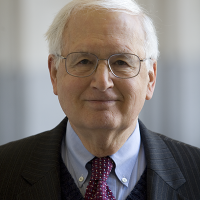
Founding Director Emeritus, Kissinger Institute on China and the United States

Kissinger Institute on China and the United States
The Kissinger Institute works to ensure that China policy serves American long-term interests and is founded in understanding of historical and cultural factors in bilateral relations and in accurate assessment of the aspirations of China’s government and people. Read more


Indo-Pacific Program
The Indo-Pacific Program promotes policy debate and intellectual discussions on US interests in the Asia-Pacific as well as political, economic, security, and social issues relating to the world’s most populous and economically dynamic region. Read more

Explore More
Browse Insights & Analysis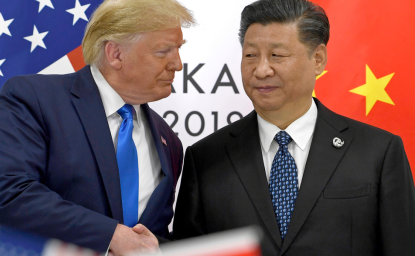
China Strikes Back Against US Tariffs, But Leaves Room for Negotiations

